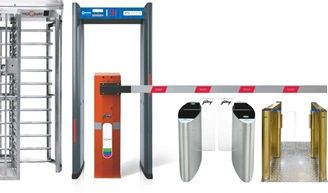Godrej & Boyce Security Solutions division expects the government’s policy push for higher quality products in the market to act as a significant boost to its business. Moreover, the company also anticipates that production linked incentives for electronics will eventually help in reducing its dependence on imports from China for digital locks.
Pushkar Gokhale, Executive Vice President and Business Head of Security Solutions business at Godrej & Boyce, said that the company is looking to build a local ecosystem of suppliers.
He said, “While we manufacture the body of lockers, the digital locks are mainly sourced from China. Within the next 1 or 2 years, we hope that the PLI scheme boosts the local ecosystem following which we can look to source mostly from the country.”
The security solutions business of Godrej & Boyce, the flagship firm of Godrej Enterprises Group, manufactures and sells lockers, cameras, and alarm systems among other security devices. In this area, Gokhale said that the recent quality control orders issued by the Department For Promotion Of Industry And Internal Trade (DPIIT) can also help in boosting the company’s business. “The order for high-security safes will act as a tailwind. The requirement of BIS labels on products acts as an advantage for us in taking on unorganised players who supply poor products,” he said.
He added that the challenge is educating the buyers across the country about the orders but the formalisation bid is expected to act as a significant boost in its growth prospects. The company has a domestic and international clientele in both institutional and home spaces. It clocked a revenue of over Rs 1,000 crore in the last financial year, with the target of Rs 1,500 crore by financial year 2027.
Gokhale said that a significant growth driver for the company is the expansion of its home business. Presently, institutions make up for 65 per cent of the revenue while the rest comes from homes. The share of home business is expected to increase to 45 per cent in the next few years.
“The penetration of such products in the market is somewhere around 3 per cent. We are working to increase this to 10 per cent in the next four to five years,” Gokhale said.
Apart from the domestic market, the company is also exporting its products to 50 countries. Revenue from exports is around 10 per cent and is expected to increase to 15 per cent. “For us, the most exciting markets are in the United States and Europe. We are investing in winning the required licences in the respective markets to be able to increase our share,” he noted.








